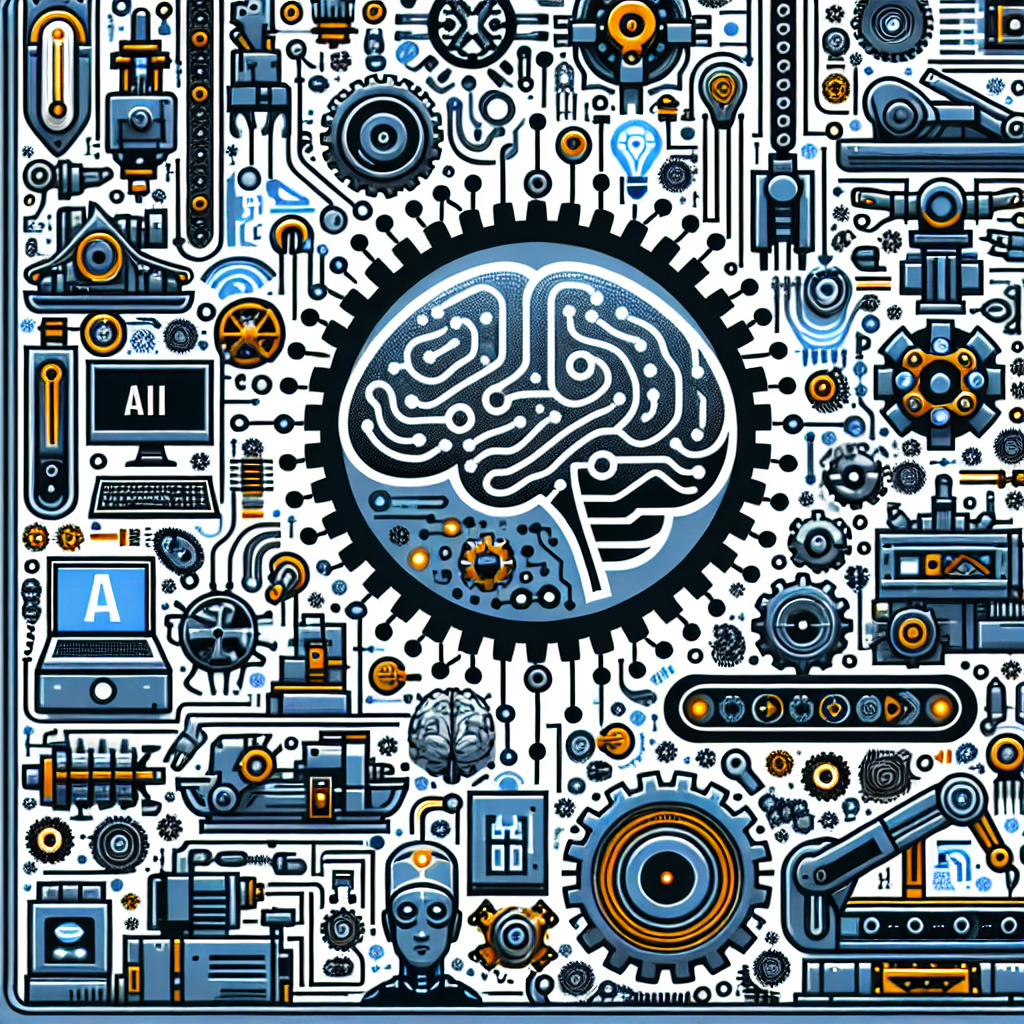AI-Powered Automation in Manufacturing: Revolutionizing the Industry
The manufacturing industry has undergone significant transformations in recent years with the rise of artificial intelligence (AI) and automation technologies. These advancements have revolutionized the way products are made, increasing efficiency, reducing costs, and improving overall quality. AI-powered automation in manufacturing has played a crucial role in driving these changes, and its impact is only expected to grow in the coming years.
What is AI-Powered Automation in Manufacturing?
AI-powered automation in manufacturing refers to the use of artificial intelligence technologies to automate various processes in the manufacturing industry. This includes tasks such as production planning, quality control, inventory management, and machine maintenance. By harnessing the power of AI, manufacturers can streamline their operations, improve productivity, and enhance the overall efficiency of their manufacturing processes.
One of the key components of AI-powered automation in manufacturing is machine learning, a subset of AI that enables machines to learn from data and make intelligent decisions without being explicitly programmed. Machine learning algorithms can analyze vast amounts of data to identify patterns, predict outcomes, and optimize processes in real-time. This capability allows manufacturers to adapt quickly to changing market conditions and customer demands, leading to increased agility and competitiveness.
Another important aspect of AI-powered automation in manufacturing is the use of robotics. Robots equipped with AI technologies can perform a wide range of tasks, from assembling products to transporting materials, with speed and precision. These robots can work alongside human workers, enhancing their productivity and safety while reducing the risk of errors and injuries. By integrating AI-powered robots into their operations, manufacturers can achieve higher levels of efficiency and consistency in their production processes.
Benefits of AI-Powered Automation in Manufacturing
The adoption of AI-powered automation in manufacturing offers a wide range of benefits to manufacturers, including:
1. Increased productivity: AI-powered automation can streamline manufacturing processes, reduce downtime, and improve overall efficiency, leading to increased productivity and output.
2. Cost savings: By automating repetitive tasks and optimizing resource utilization, manufacturers can reduce labor costs, minimize waste, and lower production expenses.
3. Improved quality: AI-powered automation can enhance product quality by detecting defects, monitoring production parameters, and ensuring consistency in manufacturing processes.
4. Enhanced safety: By delegating hazardous or strenuous tasks to AI-powered robots, manufacturers can improve workplace safety and reduce the risk of accidents.
5. Faster time to market: AI-powered automation enables manufacturers to respond quickly to market changes, launch new products faster, and stay ahead of the competition.
6. Sustainable practices: AI-powered automation can help manufacturers reduce their environmental footprint by optimizing energy usage, minimizing waste, and promoting sustainable practices.
Case Studies of AI-Powered Automation in Manufacturing
Several companies have already embraced AI-powered automation in manufacturing and are reaping the benefits of these technologies. One such example is Siemens, a global leader in industrial automation and digitalization. Siemens has implemented AI-powered technologies such as predictive maintenance, digital twins, and autonomous robots in its manufacturing facilities to improve efficiency, reduce costs, and enhance product quality.
Another example is Tesla, the electric vehicle manufacturer known for its innovative approach to manufacturing. Tesla has integrated AI-powered automation into its production processes, using robots and machine learning algorithms to optimize assembly lines, improve vehicle performance, and accelerate production rates. This has enabled Tesla to scale up its operations rapidly and meet the growing demand for its electric vehicles.
FAQs
Q: Is AI-powered automation in manufacturing suitable for all types of industries?
A: AI-powered automation can be applied to a wide range of industries, including automotive, electronics, pharmaceuticals, food and beverage, and aerospace. Each industry may have specific requirements and challenges that need to be addressed when implementing AI-powered automation.
Q: What are the key challenges of adopting AI-powered automation in manufacturing?
A: Some of the key challenges of adopting AI-powered automation in manufacturing include the high initial investment, the need for skilled personnel to operate and maintain AI technologies, data security and privacy concerns, and potential resistance from employees to new technologies.
Q: How can manufacturers ensure the successful implementation of AI-powered automation?
A: Manufacturers can ensure the successful implementation of AI-powered automation by conducting thorough research, identifying the most suitable AI technologies for their specific needs, providing adequate training to employees, and continuously monitoring and optimizing their processes to maximize the benefits of automation.
Q: What are the future trends in AI-powered automation in manufacturing?
A: The future trends in AI-powered automation in manufacturing include the adoption of more advanced AI technologies such as natural language processing and computer vision, the integration of AI-powered robots with IoT devices and cloud computing, and the development of AI-powered autonomous factories that can operate with minimal human intervention.
In conclusion, AI-powered automation is revolutionizing the manufacturing industry by enabling manufacturers to increase productivity, reduce costs, improve quality, and enhance sustainability. By harnessing the power of AI technologies such as machine learning and robotics, manufacturers can transform their operations and stay ahead of the competition in an increasingly competitive global market. As AI-powered automation continues to evolve, it is essential for manufacturers to embrace these technologies and adapt to the changing landscape of the industry.

